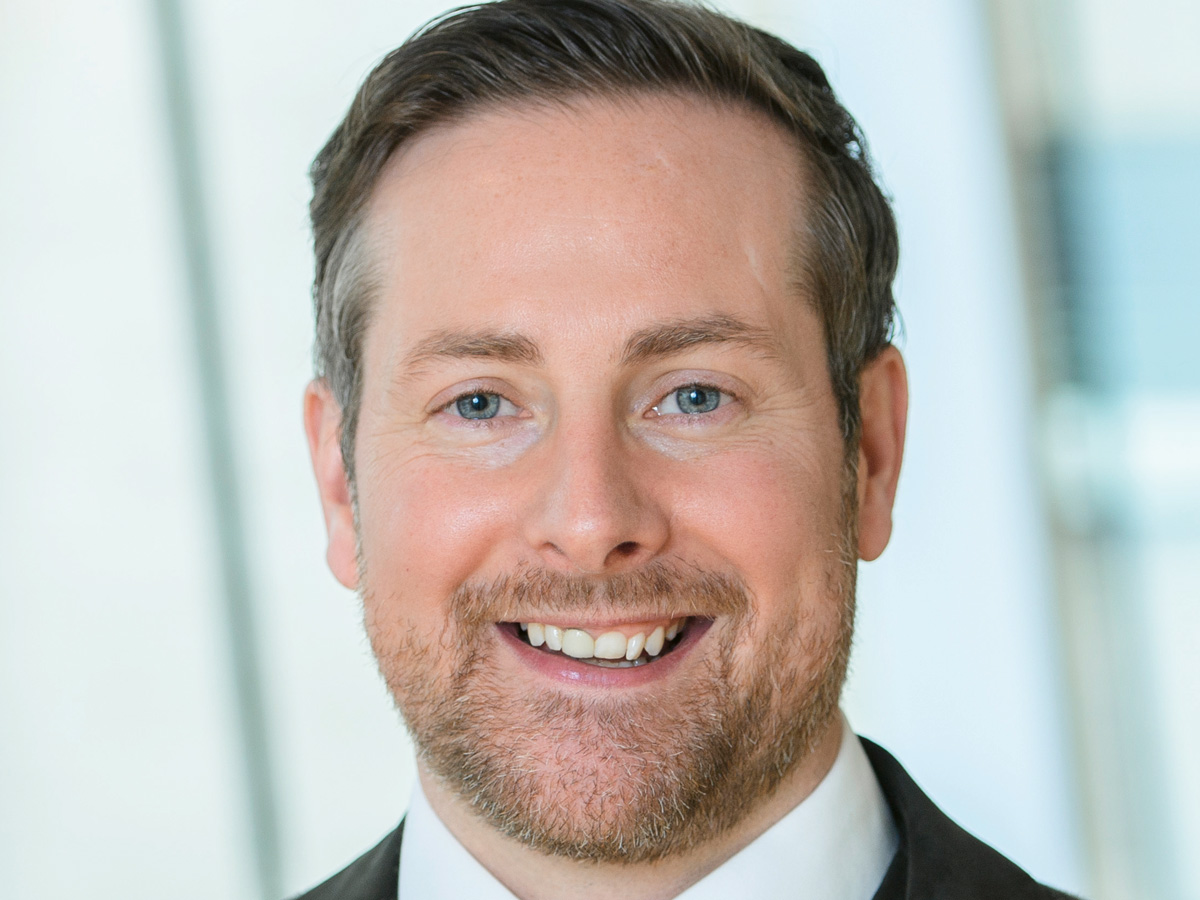What does the role of social themes lead entail?
Within the investment division, I look at social issues in the Church Commissioners’ portfolio. I look at human rights, slavery, ethics, the just transition and ethical screening – and that covers all asset classes.
The role of social themes lead is a new position: why was it created?
I joined in April last year when the Church Commissioners decided to bring in more thematic specialists. This reflected a strategy change within the organisation away from having generalists to a focus on specialists in particular areas.
Why is the social aspect so important to the Church Commissioners?
At the highest level, the Church of England’s Marks of Mission include addressing social structures and social issues. Our role as an ethical investor is plugged into those social structures.
The social aspect should be equally important to all investors because fundamentally, investors are part of society. They are impacted by it; they are not separate from it.
That is an important part of the ESG debate: investors should not see themselves as separate from society. And our belief is that socially responsible conduct underpins value creation and supports long-term returns.
A good point. Do you think, therefore, that the S in ESG gets neglected by investors in favour of the E?
Neglected is a little strong, but the S has been a poor cousin to the E. Although if we go back to when responsible investment and ethical investing was new, a lot of it was people focused. It was about avoiding products that were inherently harmful, like tobacco. We don’t invest in those because they harm people. So there was a starting point with a heavy S as a focus in investment.
The rise of sustainability led to a heavy focus on the E, particularly climate issues. That then received a lot of traction. In part, it reflects that many investors got behind the idea of climate change as a systemic risk. The setting up of frame- works – like the Task Force on Climate-related Financial Disclosures – came with all that and it was driven forward.
There is also an argument that the numbers within the E are easier to wrap your head around, such as the targets. Whereas the S can mean different things to different people.
Is that why the social part doesn’t get the focus it should?
There are always going to be trade-offs in terms of resources and what to focus on. Seeing what has happened in the past few years, particularly between Covid and social movements in North America, has helped push the S higher up the agenda. But it is often focused on the issue of diversity and inclusion. And that doesn’t necessarily translate into all parts of the world having the same point of focus. There is a certain element of being contextual with the different topics.
Like with net zero in the E, there isn’t that identifiable equivalent that everyone can pile into and push forward on within the S. So it isn’t, coming back to the initial point, that the S hasn’t been neglected as such, it is in fact more disparate across a lot of different topics.
So, therefore, does a net zero equivalent need to be created on the social front?
We want companies to respect human rights and we recognise social inequalities as a systemic risk. We want companies to address social inequality or at least not be entrenching it.
And on those two things, it is unfortunately something that companies don’t coalesce around. There is no net positive on the social side because you cannot offset human harms here by doing good stuff over there.
How does your responsible investment approach work overall?
We are quite open about our responsible investment approach, which is set out by our RI and ethical policies. Our framework is to respect people and the planet. It is big, as it is not either/or, and relates to increasing the positives and decreasing the negatives when dealing with those risks.
The systemic risks we have focused on will guide our stewardship work on three levels: climate change, nature loss and social inequality. They also feed into the practical work as to where we should invest.
And then there is the micro level, where we actually engage with assets and individual companies. And also on the manager level, where we integrate responsible investment into our manager selection so they improve and go higher up that level of responsible practices.
Then there is the macro level, where we look at the big picture stuff – the environment in which businesses operate in. So that is how we translate the policy into a practical approach.
You are guided by the Charity Commission’s rules: do they hamper your ESG ambitions?
We are not an impact-first investor. The Charity Commission’s rules set out quite clearly that our charitable objectives are to supply sustainable returns to the Church. So that gives us nice clear parameters. Just because we cannot do concessionary investing it doesn’t mean we cannot have a positive impact at the same time.
They hamper us in that respect – because it comes down to the objectives of the organisation. There is a box we are in – within the rules – and it is about how we do the best within that box to achieve what we want to achieve.
For example, we had a green bond launch, which fed into the sustainability investments. So there is plenty like that we can do. There is a vast amount of impact that charity investors can have.
The Church Commissioners have committed to divesting from fossil fuel companies which are not aligned with the Paris Agreement goals. Where are you with these plans?
Back in 2021, we excluded 20 oil and gas majors from our investment portfolio. We are now excluding BP, Ecopetrol, Eni, Equinor, Exxon Mobil, Occidental Petroleum, Pemex, Repsol, Sasol, Shell and Total, after concluding that none of them are aligned with the goals of the Paris Climate Agreement, as assessed by the Transition Pathway Initiative.
The broader exclusion of all oil and gas exploration, production and refining companies will follow by the end of 2023. The decision to disinvest was not taken lightly. Alan Smith [First Church Estates Commissioner] has said on the issue that the energy majors have not listened to the voices in society or markets they serve and they are not moving quickly enough on the transition.
Last year you made a commitment to vote against companies that do not meet expectations on human rights. Why is this important?
It comes back to having respect for the people. On the human rights policy, we expect all companies to respect human rights. That is a fundamental expectation. And it underpins other social themes like decent work, just transition and artificial intelligence ethics.
We also recognise, as I have said, social inequality is a systemic risk, which can create a risk to investors like us. We agree with the Business Commission to tackle Inequality, which is that at the heart of that risk is how companies respect human rights.
So it brings together our ethical thinking and our long-term systemic risk thinking. It is about how we take that systematic approach.
Would you divest from a company over this issue as a result?
What we are looking at is whether they have policy commitments to respect human rights and whether they implement due diligence. These topics are well aligned to the legislative requirements. It is a good hook to engage with companies. It is not really a disinvestment conversation. But if there are breaches of human rights, that is then a different conversation.
The Church Commissioners list the themes as Respect for People and Respect for the Planet. What do they mean?
As I mentioned, it is big and we look at where both come together: like a just transition for workers towards net zero, or respect for land and rights in addressing nature loss.
It gives us a focus area of the things we want to see. We have set out net-zero targets. It gives us the ability to say why we are talking about these topics and gives us a framework in which to bring all the things together. We are recruiting for a planet lead at the moment.
Your experience is leading social and human rights rankings and impact at the World Benchmarking Alliance. Has your time as a social performance consultant and an officer in the Royal Navy served you well in your current role?
I hope so. I have had a wiggly career path. It is good to have a diverse experience coming into a role like this.
And there are some unrealistic expectations placed on the ESG stuff – to be experts across all of its issues.
One of the Navy’s defined traits is to be cheerful in adversity. That’s useful when we have emerging dramas. Worse things have happened at sea. I bring that with me when it comes to emergencies or problems.
From the civil society piece, it is engaging with companies and understanding what engagement looks like. That has been useful.
What have been your biggest challenges in this role?
Moving into a different space. It has been learning about the Church Commissioners, as it is a complex organisation. It has a long and distinguished history and is a diverse investor. There has been a lot to learn. So the biggest challenge has been wrapping my head around it all.
What are your main priorities going forward and why?
One of them is the human rights voting approach. We are looking to publish a round up on this towards the end of the year. But we also recognise the lack of data on this. So we are in a group of similar investors who are engaging with data providers on this topic. That is something we want to carry forward. We want to take systemic action, but we recognise the data is not yet available.
A broader priority is to bring all these disparate elements into an overarching social plan. This is so that we can have a social action plan close to that of a climate action plan.





Comments